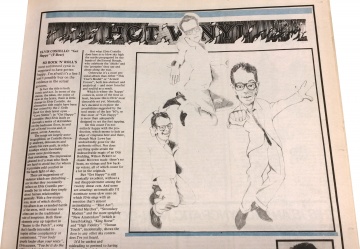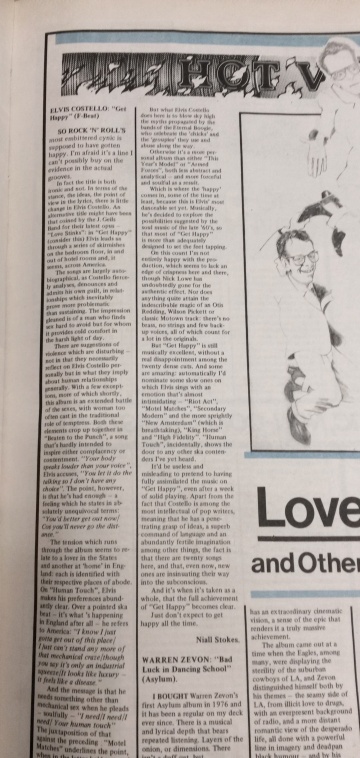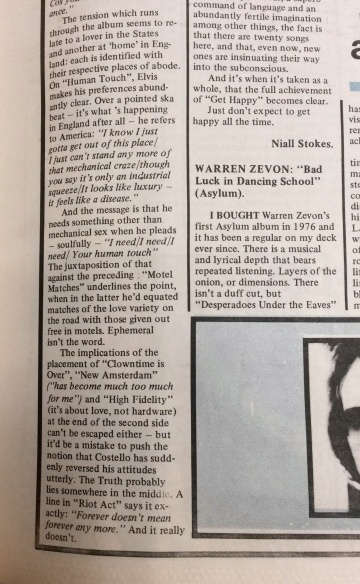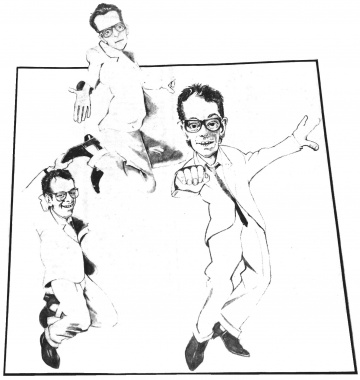Hot Press, February 13, 1980: Difference between revisions
(+more text) |
(+more text) |
||
| Line 19: | Line 19: | ||
The tension which runs through the album seems to relate to a lover in the States and another at 'home' in England: each is identified with their respective places of abode. On "Human Touch," Elvis makes his preferences abundantly clear. Over a pointed ska beat — it's what's happening in England after all — he refers to America: ''"I know I just gotta get out of this place / I just can't stand any more of that mechanical craze / though you say it's only an industrial squeeze / It looks like luxury — it feels like a disease."'' | The tension which runs through the album seems to relate to a lover in the States and another at 'home' in England: each is identified with their respective places of abode. On "Human Touch," Elvis makes his preferences abundantly clear. Over a pointed ska beat — it's what's happening in England after all — he refers to America: ''"I know I just gotta get out of this place / I just can't stand any more of that mechanical craze / though you say it's only an industrial squeeze / It looks like luxury — it feels like a disease."'' | ||
And the message is that he needs something other than mechanical sex when he pleads — soulfully — ''"I need / I need / I need / Your human touch."'' The juxtaposition of that against the preceding "Motel Matches" underlines the point, when in the latter he'd equated matches of the love variety on the road with those given out free in motels. Ephemeral isn't the word. | |||
The implications of the placement of "Clowntime is Over," "New Amsterdam" (''"has become much too much for me"'') and "High Fidelity" (it's about love, not hardware) at the end of the second side can't be escaped either — but it'd be a mistake to push the notion that Costello has suddenly reversed his attitudes utterly. The Truth probably lies somewhere in the middle. A line in "Riot Act" says it exactly: ''"Forever doesn't mean forever any more."'' And it really doesn't. | |||
Revision as of 17:31, 15 July 2015
|




